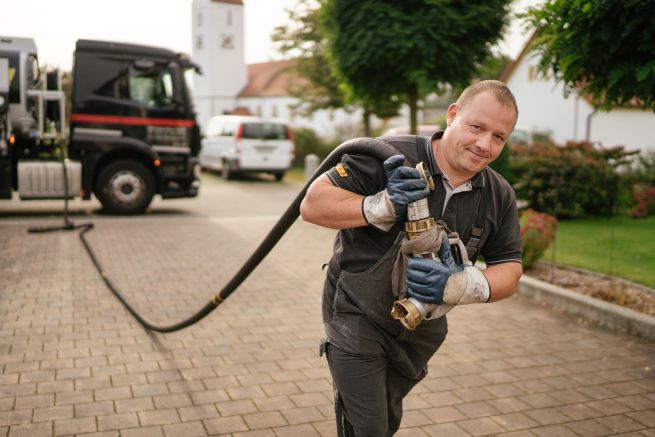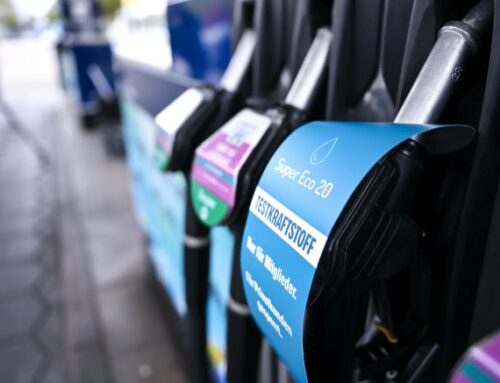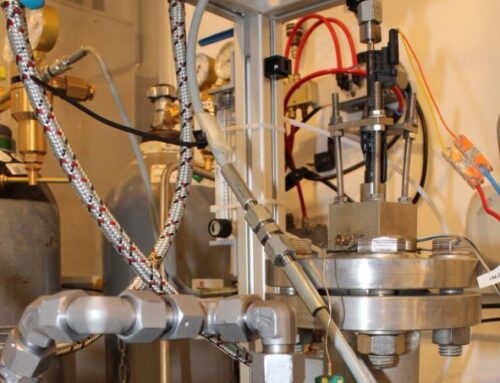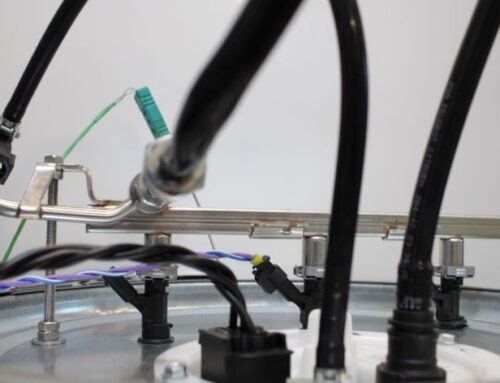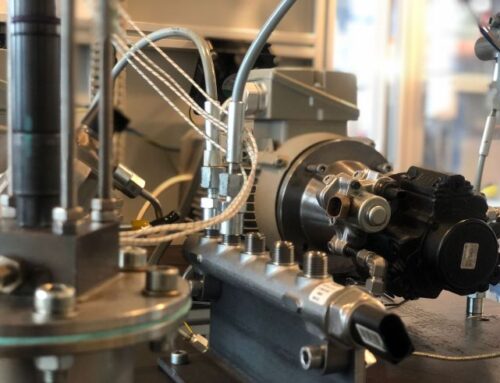Practical test with new alternative fuel
13 November 2020 – Greenhouse gas-reduced heating oil, one third of which consists of renewable components based on residual materials, is now undergoing a two-year practical test in 21 residential buildings. The Federation of the German Heating Industry (BDH) and the Institut für Wärme und Mobilität (IWO) are jointly using a so-called R33 fuel combination. The aim is to test its readiness for use. TEC4FUELS, as the testing company, supports the field test by procuring suitable fuels and advising the associations and companies involved.
For the approximately 5.5 million oil-fired heating systems in Germany there are opportunities to become more climate- and environmentally friendly. It is important to reduce fuel consumption and thus increase their efficiency. This can be achieved, for example, in the case of modernization by installing a heating appliance with modern condensing technology and optimizing building insulation. In addition, the integration of alternative energies into the heating system – such as solar power or solar thermal energy – helps to reduce fuel consumption. Furthermore, heating oil with reduced greenhouse gas emissions can further reduce the building’s CO2 footprint. OWI Science for Fuels gGmbH has already proven in various research projects that greenhouse gas-reduced fuels can be technically suitable for oil heating systems under certain conditions. The aim of the current field trial with 21 residential buildings is to test a selected combination of renewable fuels for their practical suitability as an option for an increasingly “green” heating oil on the basis of positive laboratory results. The Institut für Wärme und Mobilität. (IWO) and the Federation of the German Heating Industry (BDH) are organizing this field test with the support of equipment and component manufacturers from the heating industry and TEC4FUELS GmbH.
Second generation biofuel
The fuel used in the field trial consists of 26 % hydrogenated residues, the production of which does not compete with food cultivation. IWO has been using this second-generation waste-based, paraffinic biofuel since 2017 without any problems as an admixture to classic heating oil in a small number of its own pilot projects. In this project, which has now been launched together with the heating equipment industry, the fuel mix used is being expanded by a further 7 % of esterified bio-oils, so-called FAME. This mixture with a 33 % share of renewable components is already being used as a greenhouse gas-reduced diesel fuel in vehicle fleets – for example at Volkswagen or Bosch – under the term “R33 Blue Diesel”. Since CO2-reduced paraffinic fuels such as hydrogenated residues of biogenic origin are only available to a limited extent in the heating oil trade to date, TEC4FUELS GmbH supports the BDH and IWO in the procurement and organization of delivery.
Clarifying questions of safe operation
The field test is designed as a long-term test of this new standard-compliant fuel in combination with conventional fuel oil and various commercially available condensing boilers under realistic conditions. The project is scheduled to run until 2022, with an option to extend it by one year. “Following the successful laboratory tests, we do not expect any heating system failures or other surprises during this practical test,” explains TEC4FUELS Managing Director Klaus Lucka. “From the results, conclusions can be drawn about the compatibility of the fuel mixture with the fuel-carrying components of various heating systems. For example, it is possible to determine whether the maintenance requirements change and operational reliability remains at a high level”. As a safeguard, TEC4FUELS examines samples from the fuel oil tank for their long-term stability and provides advice on questions of compatibility, fuel and material properties and possible interactions. Should this fuel combination also prove successful in practice, this would further expand the range of oil-heating-compatible, greenhouse gas-reduced liquid energy sources.
The companies Bosch Thermotechnik with Buderus, Dehoust, Viessmann, Weishaupt and Wolf are supporting the project with their own field test facilities, while other companies such as Danfoss, GOK, Hoval and Suntec are providing know-how and answering component-related questions. The practical test is closely linked to a transnational project of the European umbrella organisation of the heating industry EHI (Association of the European Heating Industry) and the European fuel oil association Eurofuel.
